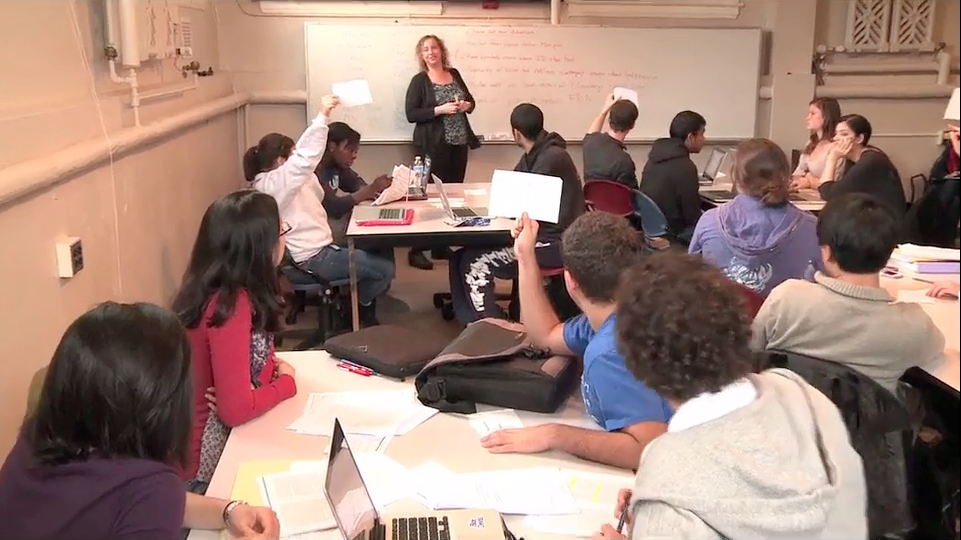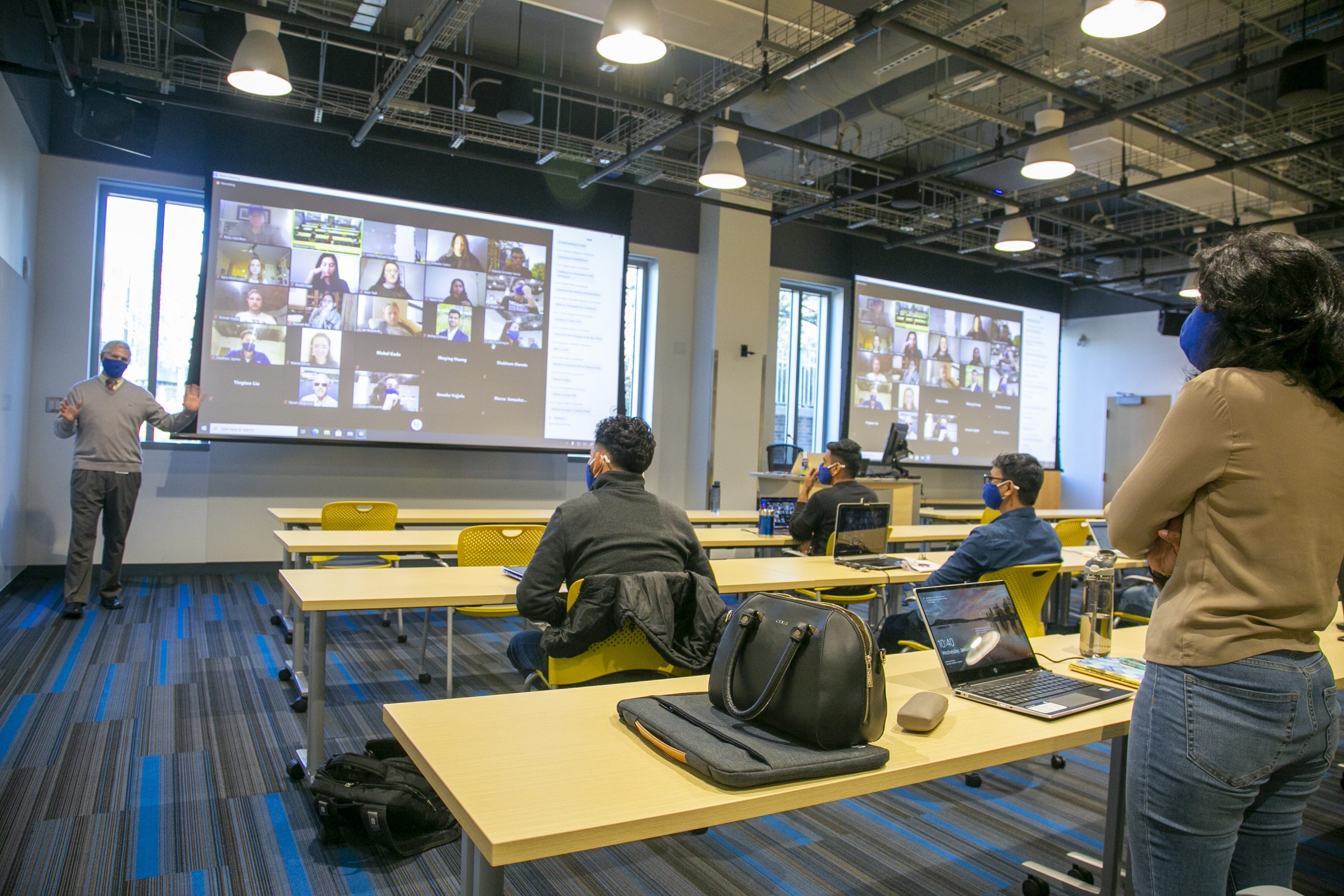
What Are Alternative Credentials?
Alternative credentials are learning experiences or programs smaller than degrees, such as certificates, micro-credentials, industry certifications and other non-degree qualifications, in which successful completion involves acquisition of specific competencies or skills as assessed and verified by the program provider.
Upon successful completion of an alternative credential program or experience, a learner is awarded an artifact representing their accomplishment, such as a high-quality digital badge, paper or pdf certificate, or other artifact. In this document and other Learning Innovation and Lifetime Education (LILE) materials, our use of the phrase “alternative credentials” is usually intended to mean programs or experiences which award high-quality digital badges, and when we write “badge” we usually mean high-quality digital badges.
What do we mean by “high-quality digital badges”?
A high-quality digital badge is a visual representation of successful acquisition of a competency, skill or accomplishment that is accurate, authentic, portable (i.e., shareable on platforms such as LinkedIn and websites) and verifiable. It includes metadata that provides details about the badge, such as who issued it, when it was issued, and what criteria were met to earn it. Canvas Credentials is a platform which issues high-quality digital badges adhering to the Open Badge standard.

Because alternative credentials are shorter-form educational experiences than degrees, these credentials allow learners to acquire specialized skills more quickly and affordably than traditional degree programs. If designed to accommodate this, alternative credentials can also be “stacked” or added together into a larger, more traditional credential.
As the demand grows for learners within and beyond degree programs to be able to identify their acquisition of specific, demonstrable skills, alternative credentials have emerged as flexible and accessible learning pathways. At LILE, we believe that alternative credentials can not only transform the way individuals approach learning throughout their lives, but also positively impact how they advance in their careers.

Why are alternative credentials essential in high-impact learning and career readiness and advancement?
Alternative credentials can help us center curiosity, creativity, and adaptability to create innovative and in-demand learning experiences. In addition to the pedagogical benefits of alternative credentials, they can also help bridge the gap between academic learning and real-world application. Particularly in the increasingly dynamic and technology-driven job market, the ability to demonstrate discrete skills can be essential for career readiness and advancement. The flexibility of alternative credentials benefits learners, programs, and employers by:

Providing Transparency and Relevance: By explicitly defining competencies and skills, alternative credentials make it clear to learners, the university community, and employers what is being taught and assessed. Whether you’re in the humanities, social sciences, or the sciences, alternative credentials can help you explicitly demonstrate the value of your programs. This level of transparency and relevancy ensures that the skills gained are directly relevant to course or program learning objectives or industry needs.

Removing barriers to education: To uphold Duke’s value of inclusivity, we must move beyond the exclusive traditional higher education model to serve broader populations. Alternative credentials help us meet diverse learners where they’re at — whether they are stacking credentials toward a degree or completing a credential to upskill professionally. Indeed, unlike traditional degree programs, alternative credentials are more accessible and flexible, enabling a diverse range of learners—whether recent graduates or mid-career professionals—to acquire new skills without leaving the workforce. This flexibility supports Duke’s commitment to inclusivity and lifelong learning by meeting learners where they are in their career journey.

Enabling lifelong learning: Our educational offerings must look toward the future. Learners, no matter their age or point in their career journey, will need lifetime engagement to have their educational and career progression needs met. Alternative credentials provide pathways both for Duke programs to adapt our offerings to those learner needs, as well as for professionals to upskill, reskill, and stay competitive throughout their careers. The flexible pathways alternative credentials provide aligns with LILE’s goal to create innovative, future-focused educational experiences that meet the evolving needs of learners at every stage of their journey. As the demand for new competencies grows across industries, alternative credentials allow learners to quickly gain industry-specific, in-demand skills; however, alternative credentials also enable learners to deepen competencies in the durable, human skills (for example, critical thinking and collaboration) that are critical for thriving across all sectors.

How are alternative credentials being used at Duke?
At Duke, alternative credentials in the form of digital badges are being leveraged to enhance the learning experience for students, faculty, and staff. Below are two examples of these initiatives.
Duke Innovation & Entrepreneurship (Duke I&E) curated a five-part Leveraged Buyout (LBO) workshop series. Upon successful completion of the series and necessary assignments, individuals will earn a badge for completion. Learners who fully engage in the series and complete all assignments earn a digital badge to recognize their proficiency in the material.
In a collaborative effort between multiple units, the Responsible Conduct for Duke Community Engagement course was transitioned to Canvas and designed for any member of the Duke University community involved in student engagement (instruction, mentoring, supervision or other interaction). Participants who demonstrate comprehension of the learning objectives through the online assessment are awarded a digital badge of completion. In this instance, Teaching Assistants who complete the training can easily verify their competency by sharing their digital badge with their supervisor.
How can I learn more about alternative credentials at Duke? How will LILE be a trusted partner in helping my academic unit pilot alternative credentials?
As the central source for teaching and learning innovation at Duke, LILE can be a trusted partner in helping to design and integrate alternative credentials into your course or academic program. We specialize in research-driven educational consulting and market-driven lifelong learning, including career-relevant professional offerings.
Through our core values of integrity, inclusivity, innovation, collaboration, and lifelong learning, we are forming partnerships across campus that empower academic units to create alternative credentials that center learner needs.
If you’re interested in learning more about how we can work together to increase pathways for skills based learning, you can contact us at lile-support@duke.edu.

